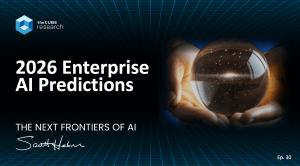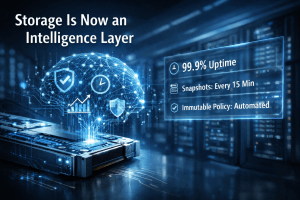The News
CData Software has launched the CData Databricks Integration Accelerator, designed to streamline data integration for hybrid and multi-cloud Databricks environments. The no-code solution reduces pipeline development time by up to 90%, unlocking faster insights and accelerating return on Databricks Lakehouse investments.
Read the original press release here.
Analysis
Application developers and data engineers are increasingly tasked with integrating real-time, governed data across heterogeneous environments. As organizations adopt lakehouse architectures like Databricks, they often encounter friction due to fragmented legacy ETL tools and hybrid infrastructure. theCUBE Research notes that “developers are now strategic actors in cloud modernization efforts,” especially where scalable, governed data pipelines power AI and analytics. With the rise of agentic AI workloads and AI-ready data platforms, the integration layer has become critical and increasingly complex to manage manually.
What CData’s Accelerator Changes
CData’s new offering could simplify the developer’s role in data onboarding, transformation, and governance enforcement. By using a no-code approach with prebuilt connectors and automated orchestration, developers can shift their focus from pipeline maintenance to insight generation. The toolkits, covering Delta Lake ingestion, Delta Live Tables, Microsoft ecosystem integration, and agentic pipeline automation, offer programmatic extensibility with enterprise-grade compliance features like Unity Catalog. The goal is to make it easier for developers to operationalize data across structured and semi-structured sources without deep platform-specific expertise.
Legacy Data Integration Approaches Were Holding Developers Back
Integrating data into Databricks has often meant writing extensive custom code to manage ingestion, transformations, and governance across multiple clouds and on-prem environments. Developers had to bridge gaps between systems with hand-coded connectors, third-party ETL tools, or brittle workflows. This slowed time-to-value and raised project costs, particularly in large enterprises operating in regulated industries or federated data environments.
A New Model for Developer-Led Integration
The Accelerator introduces a toolkit-based model that emphasizes automation, reusability, and low-code flexibility. Developers can now extend Spark SQL models, enrich federated data, and enable CDC ingestion from over 270 sources using modular kits. The inclusion of an Agentic Data Pipelines Toolkit is especially relevant in the AI era, where programmable ingestion and real-time availability of enterprise data is crucial to power foundation models and agentic systems. This also aligns with our research suggesting developers must now “treat pipelines as code assets” in AI-first organizations.
Looking Ahead
The shift toward composable, AI-ready data platforms like Databricks suggests a move away from traditional, rigid data architectures. Developer efficiency is emerging as a top KPI in enterprise data strategy, as modern organizations seek real-time insights and governed access across decentralized environments. theCUBE Research forecasts a convergence of AI platform engineering and low-code data tooling, where integration becomes increasingly abstracted and programmable.
CData’s Role in That Transition
With this release, CData aims to become more than just a connector vendor; it could move toward becoming a full-stack integration layer purpose-built for cloud-native, AI-driven data ecosystems. If adoption patterns like NJM Insurance’s success story continue, we may see this Accelerator shape new development patterns across verticals. For developers, this could mark the beginning of a more modular and automated approach to building real-time analytics infrastructure on Databricks and beyond.


